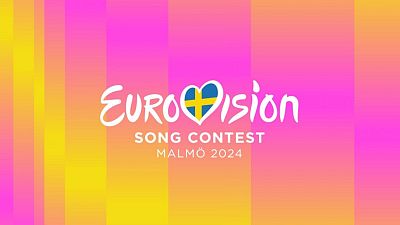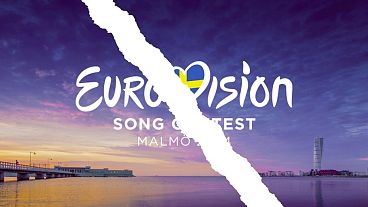Threatened with exclusion, Israel has finally agreed to change its controversial song entry...
Following the refusal of two song proposals, deemed too political and therefore contravening political neutrality rules, Israel has agreed to compromise in order to take part in Eurovision next May.
The European Broadcasting Union (EBU), the body that organises the famous contest, previously hinted that it might reject Israel’s candidate, 20-year-old Russian-Israeli singer Eden Golan, because of her song’s "political" nature.
The song in question, 'October Rain', made references to the victims of Hamas' 7 October attack on southern Israel, with lyrics like: “ There’s no air left to breathe / There is no place for me” and “They were all good children, each one of them ”.
The song also refers to “flowers”, which is often used as military code for war fatalities.
The Israeli broadcaster KAN initially said that they would withdraw from this year’s competition if the event’s organisers attempted to censor their entry. The country’s president Isaac Herzog said that Israel’s voice must be heard from the Eurovision stage.
He has since stated that “necessary adjustments” should be made to ‘October Rain’, so that it is allowed onto the show. And now, Israel’s public broadcaster has submitted a request to change the lyrics to its entry.
KAN said it had asked the writers of ‘October Rain’ and the second-place finalist, ‘Dance Forever’, to revise their lyrics while also preserving their artistic freedom. It will then officially choose a song to send the Eurovision committee.
The Israeli broadcaster said it had agreed to make the changes after a request from Isaac Herzog.
“The president emphasised that at this time in particular, when those who hate us seek to push aside and boycott the state of Israel from every stage, Israel must sound its voice with pride and its head high and raise its flag in every world forum, especially this year,” KAN said.
The song will be unveiled on 10 March.
Israel’s inclusion has caused much controversy.
In January, an open letter was issued to the EBU and signed by over 1,000 Swedish artists, calling for Israel to be withdrawn from competing. Other Eurovision countries having called for Israel to be suspended over the war in Gaza include artists in Iceland, Finland, Norway and Denmark. Elsewhere, the likes of Helen Mirren, Gene Simmons, Sharon Osbourne and Boy George signed an open letter urging Eurovision organisers to allow Israel to compete this year.
This isn’t the first time that the EBU has forced national representatives to change their lyrics – the most recent example being Georgia in 2009. Indeed, Georgia withdrew from the event after its proposed entry - ‘We Don't Wanna Put In’ - was rejected for its obvious reference to the Russian president.
The EBU have previously referred to themselves as “an apolitical member organisation” who are “committed to upholding the values of public service.”
However, they have been called out as hypocrites as they banned Russia from competing in 2022 due to its full-scale invasion of Ukraine, and Belarus the year prior.
The Eurovision Song Contest will take place from 7 to 11 May in the Swedish city of Malmö.



